After talking in the previous chapter about the new social gods –wild capitalism and crazy consumption– I reach, coincidentally, the city of Toruń, which used to be dearly but not so much nowadays, as a paradigm of those giving up their soul and character to the devil in exchange for the jangling glitter of money.
Before this metamorphosis, and precisely because of the authenticity of its beauty, Toruń used to be my favourite Polish town, where I was living for some time. It was founded (like almost all in northern present-day Poland) by the germanic knights of the Teutonic Order during the late middle ages, and it has been preserved almost unharmed despite the wars, with its gorgeous historical towers, churches and walls on unalterable red brick, getting the southern sun on their façades, reflected on the Visla waters, by whose shore the city lays. It was the craddle of the astronomer Copernicus, who gave form to his heliocentric dream and has now become the city symbol.
But I’m not going to describe now the virtues of Toruń nor its fast vulgarizing process along the past decade. Suffice to say that I’ve stayed a few days here for visiting some remaining friends of mine, and that a fine hot morning I take the bike again and, on a shirt, keep journeying along the muggy central Polish plain, now eastwards, towards my longed for Podlasie, a Polish region bordering Belarus where everything started and ended; I know what I mean, dreams and rainbows. A few years back I wrote these words about Podlasie, which some reader might even find poetic.
To get there from Toruń the finest route goes across Mazury (or the lake regio, as they call it here), driving slightly northward; but as I wanted to visit another friend at her summer cottage in Popowo Kościelne, near Warsaw, i.e. slightly south, I had no choice but to stand the boring roads of the central plain.
So I make a stopover in Popowo, at my friend’s, and the next day I stay overnight in a small town called Ciechanowiec, where the kind owner of Hotel Nowodwory, concerned about the safety of Rosaura and lacking a garage, insists that I park the bike within the very hall of the hotel, despite I told him there was no need for it, being a small town. But. to jest Polska!, he cries: this is Poland! Meaning, there is no safe town in this country.
By the way, at Nowodwory’s I ordered tatar for dinner, one of my favourites in Polish cuisine. It’s no dish for the faint-hearted: chopped raw meat served with a raw yolk, onion and pickles. Ideal if accompanied by a shot of vodka.
Thus, from Toruń and always keeping away from the busy main routes, three days later Rosaura and me finally arrive to the capital of Podlasie: Białystok.
Despite my strong emotional bonds with this city, I admit there’s nothing special about it except perhaps for the noticeable amount of beautiful women; which is certainly no small merit. But, lacking an old town and having been developed mostly during the socialist period, despite calling itself the Versailles of Poland the most a tourist can do is paying a visit to the emblematic Branicki Palace (built by an ambitious hetman who chased his own rainbow and wanted to become king of Poland), exploring its splendid parks and walking up and down along the only pedestrian street in town, Lipowa, which holds most of the commerce and the atmosphere.
On Lipowa there is a plaza, and on this plaza there is a restaurant: Esperanto, thus called because in Bialystok the jewish Lezer Levi Zamenhof was born, who would invent the famous but unsuccessful universal language.
By the way, saying that Zamenhof was Polish is not quite true; it’s like saying that Julius Caesar was Italian or Mozart was Austrian. Zamenhof was mostly Jewish (and we all know that these people don’t admit other nationality than their own), from Lithuanian ascendant, and when he came to life Bialystok was part of Russia. Actually, he was bilingual Yiddish-Russian, and only later he’d learn Polish, along with Hebrew and some other languages.
Living in this Babylon where clash and trouble among people who talked different languages arose every day, quite sensibly Zamenhof concluded that the main origin of hatred and prejudice among people comes from mutual misunderstanding, and that language is the highest wall between nations, a much more powerful and effective obstacle than any arbitrary border. Hece his interest in devising a common tongue. But such well-meant proyect was doomed to fail from the beginning, because this Lithuanian Jew forgot that people stick and even die for their prejudices and chauvinism rather than live in harmony if this means to give up preserving such important part of ourselves as our mother tongue is.
It’s certainly no small task to decide on “what is nobler in the mind to do” and how much should we endeavour for evening out language barriers when it’s about letting die what may form a part of ourselves; but whichever the answer to this question is, only resentful and unlimber minds would raise such barriers, or create them, where they didn’t exist before; only utterly narrow minded people would want to revive dying languages, reopen forgotten debates and stir up problems that were already disappearing by themselves. Such is the case of Galician, Basque and Catalan in Spain, or Gaelic in Ireland, or Lappish in Finland, and many other examples.
But let’s leave languages aside and take a look at how children reach their own dreams by Café Esperanto.
On hot summer days, it’s customary in Poland (and a privilege of a country where there is no shortage of water) to hook a wide hose to a hydrant and place an iron plate very near the other end, both attached to the ground in the middle of the street, thus creating a water screen where people can play, cool down or whatever. And it’s quite a joy to stand by one of these “fountains” and watch how children play, soaked to the bone, trying over and over to cross the magic rainbow.
Maybe these images are but a metaphore about my own journey to nowhere. But, in any case, who among us has never dreamt with also reaching the rainbow?

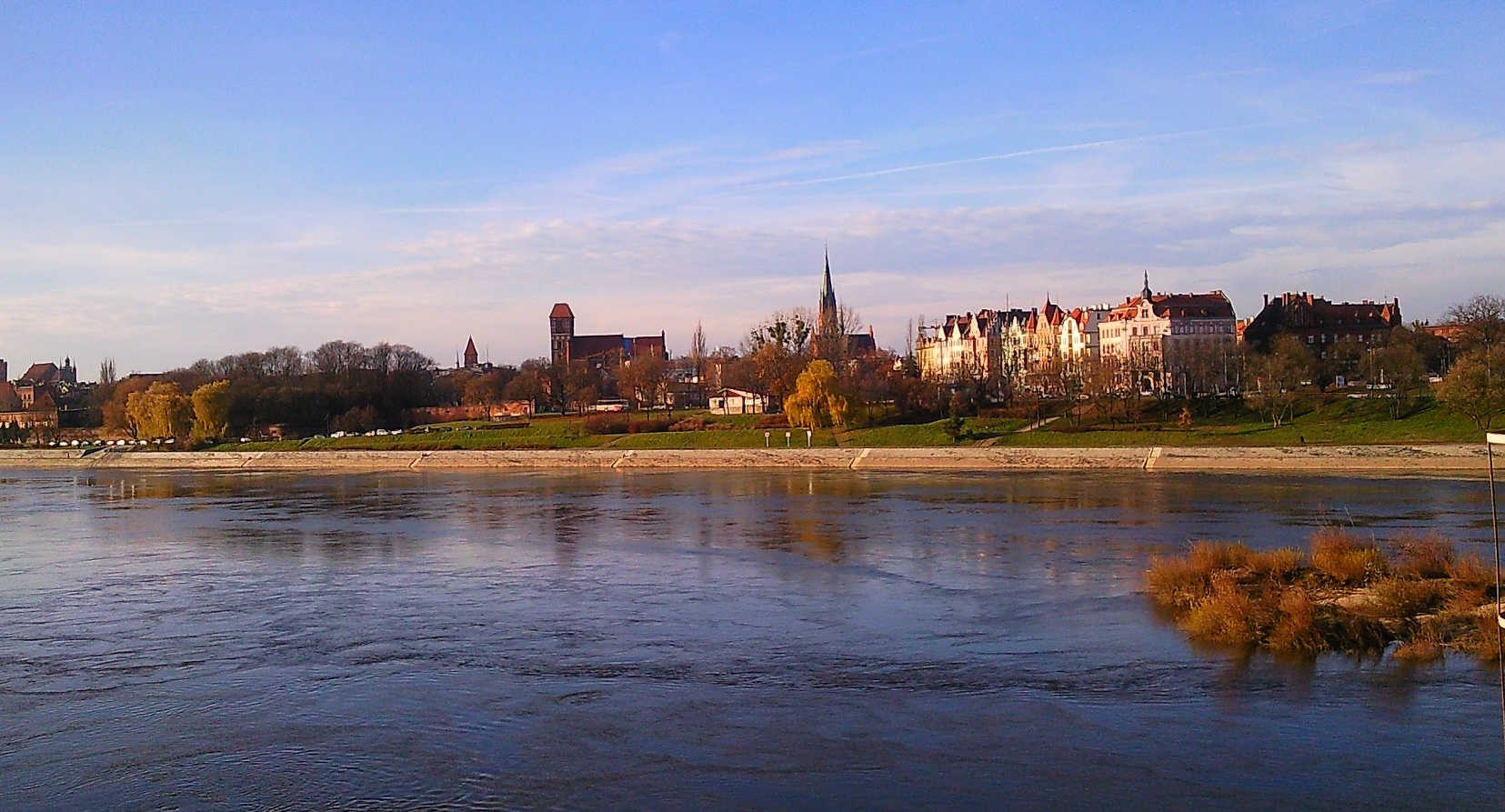
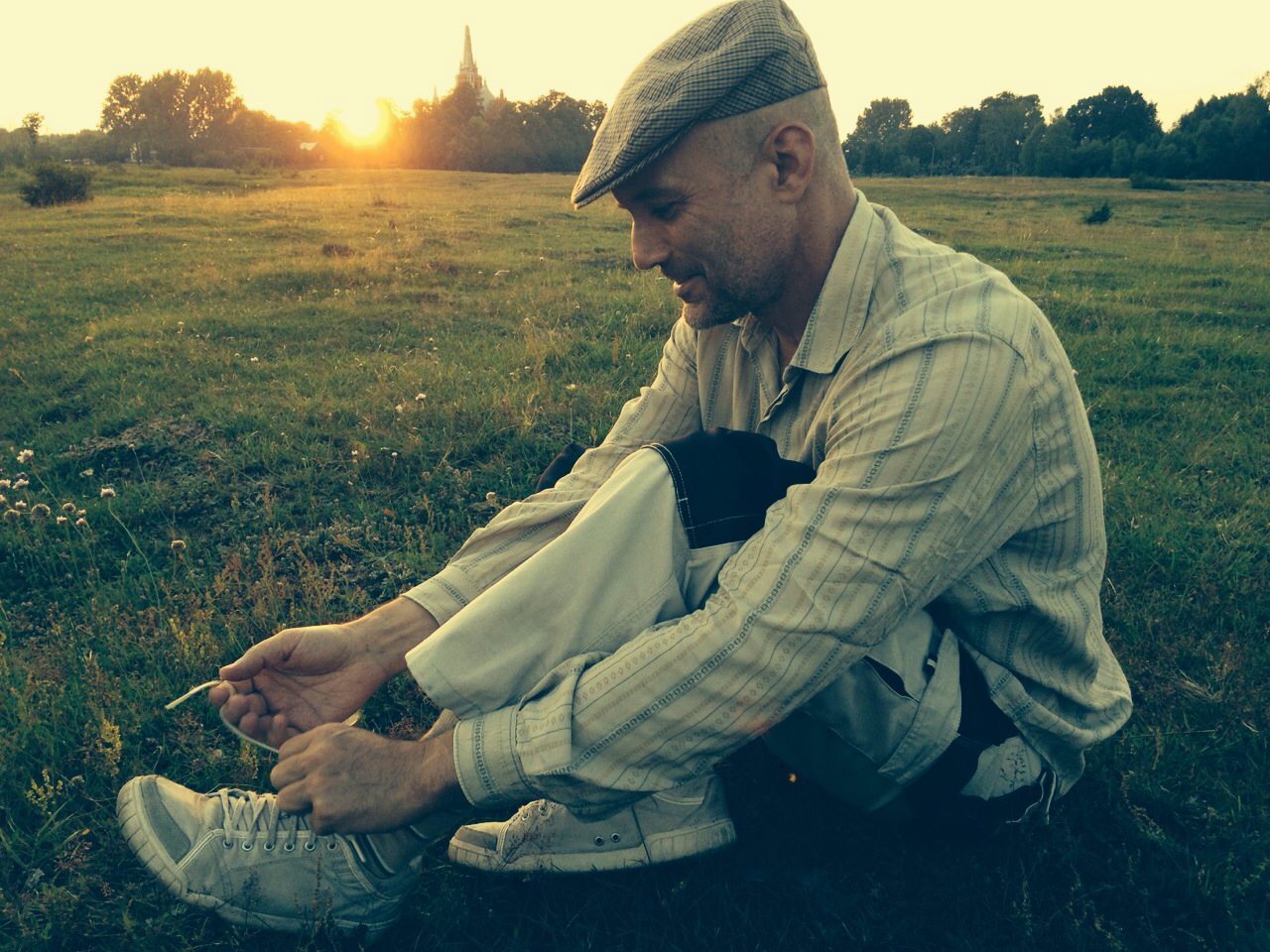
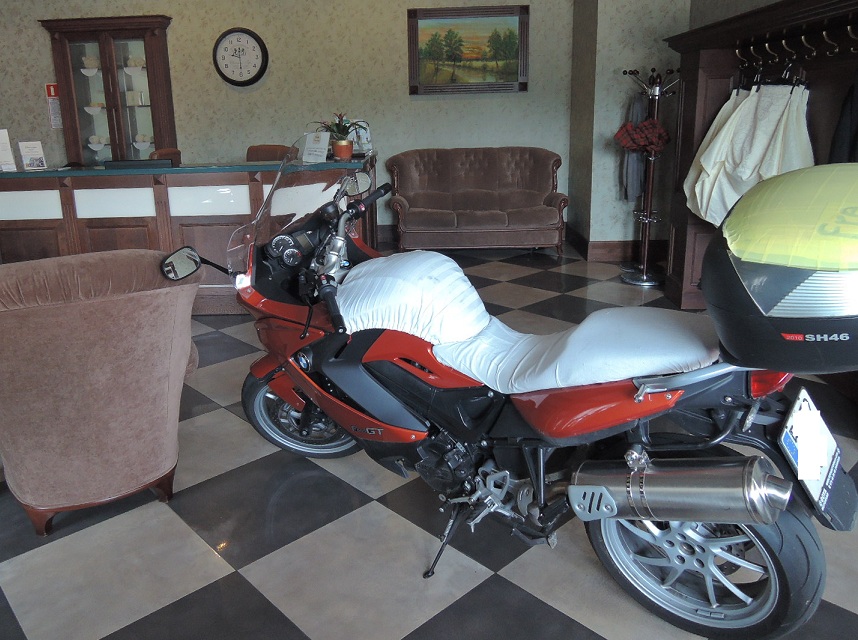
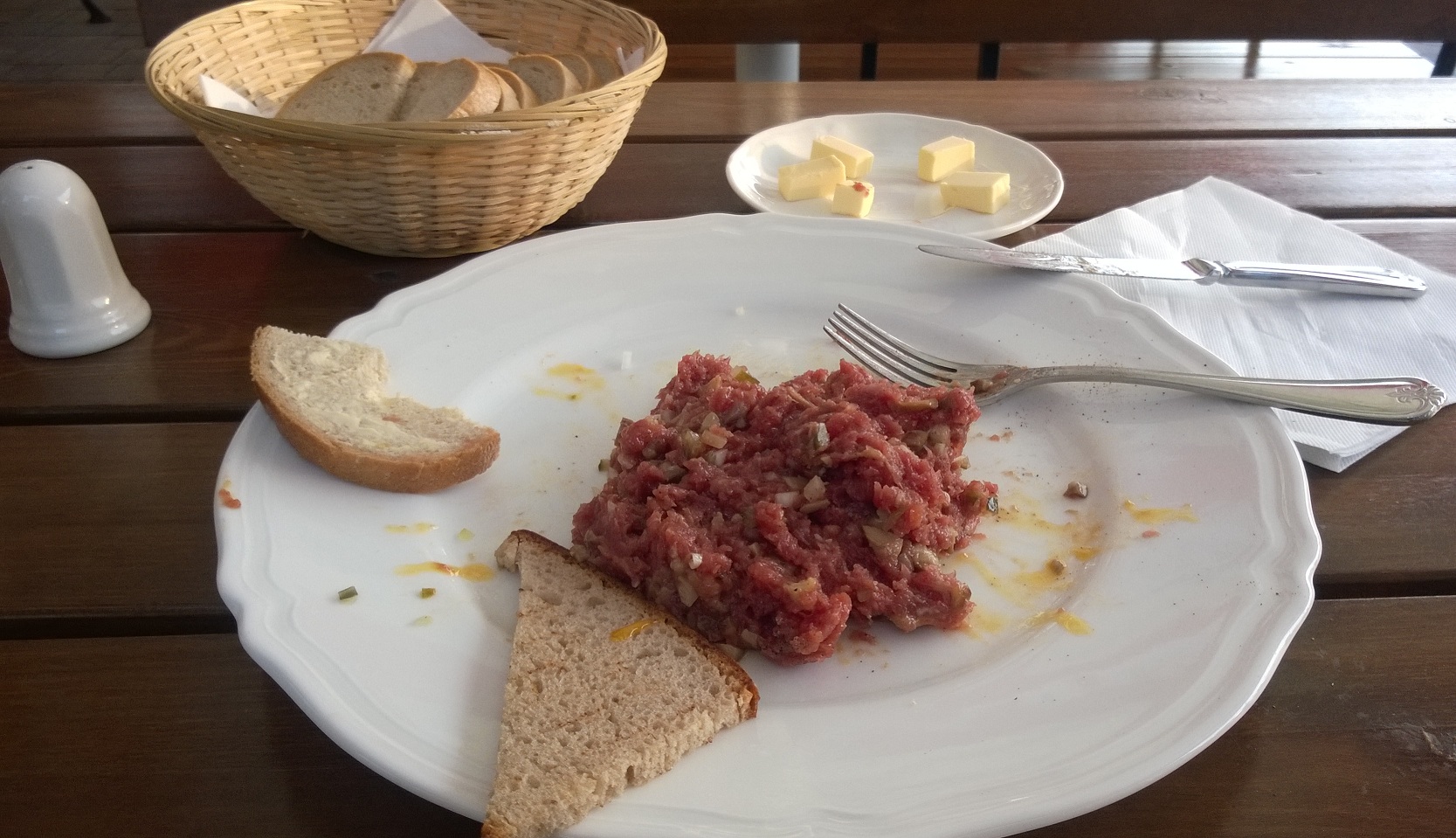
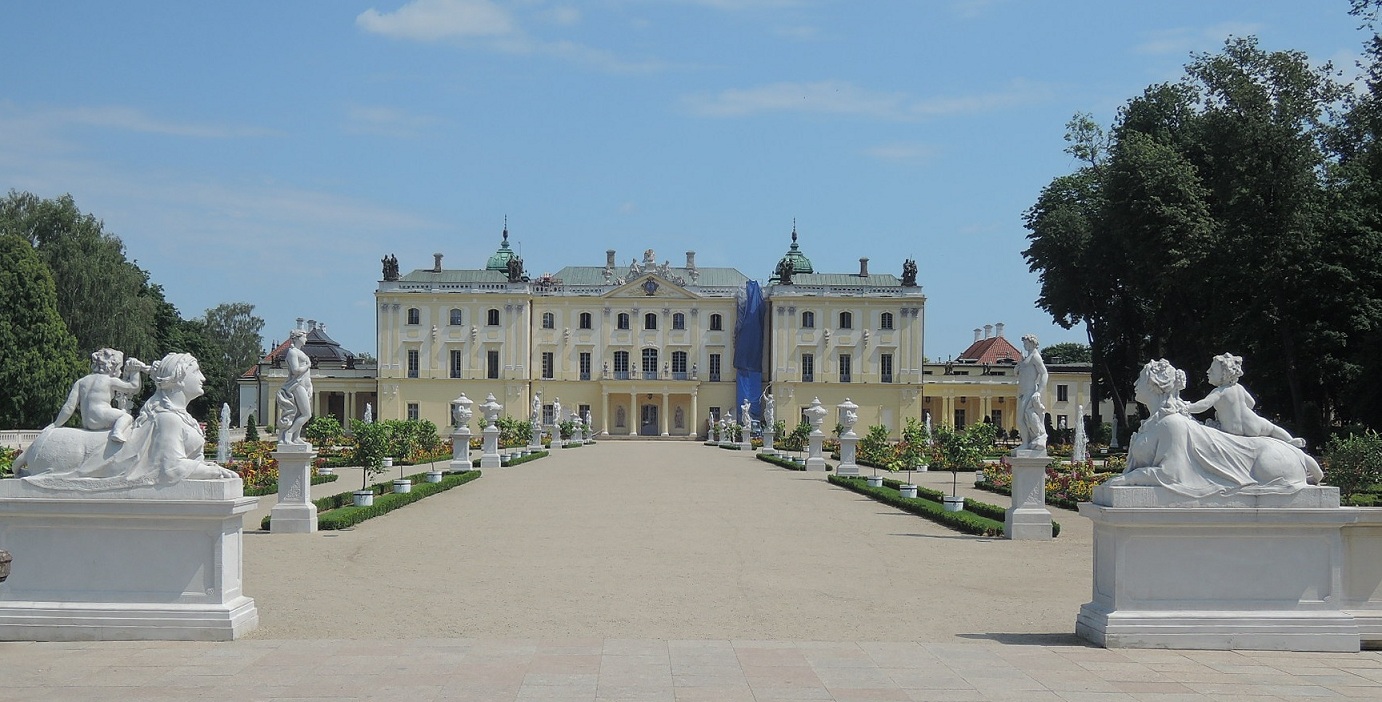
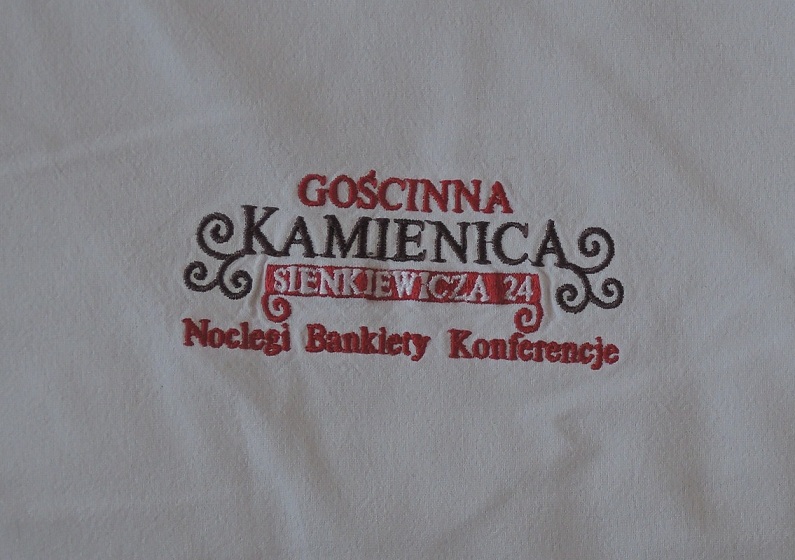

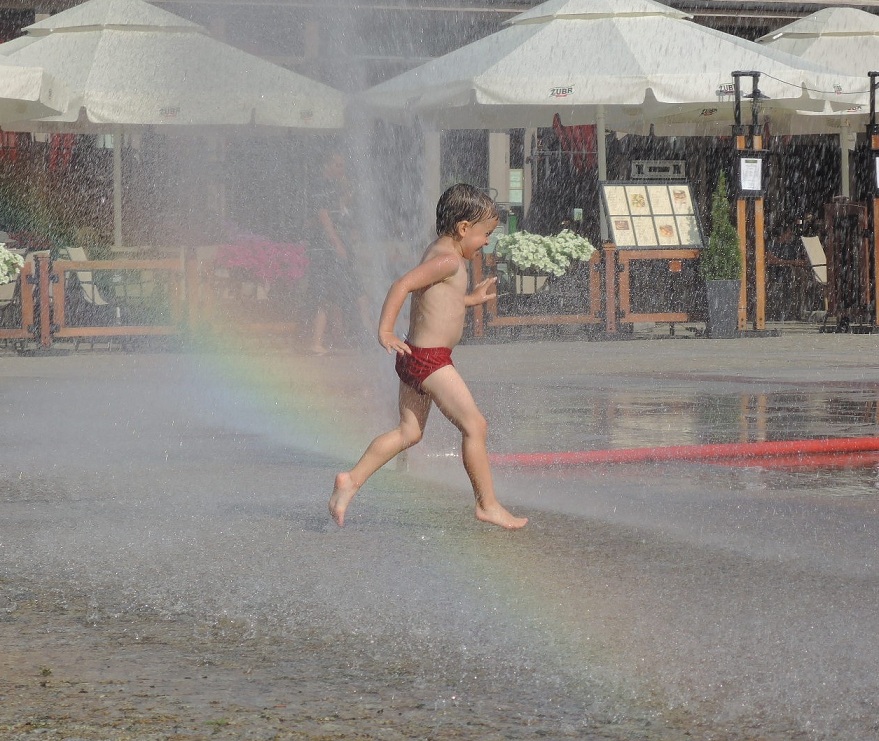
Raw meat!!! Yuck. Hey…newsflash….YOU are a consumer and traveling just for fun is a waste in the most blatant way. Now…enjoy consuming before the worry consumes you. Great article. Loved the shots of the kids chasing the rainbow
Relax. Your capitalism is not endangered by my article. But your gorillas are endangered by your capitalism. 🙂
Thanks for following!
I disagree; I believe capitalism is the only thing that can save the wild animals with today’s population.
the only other way is for the National Socialists to take over and start killing the indigenous populationsof human beings. This of course was tried a few times in history people have made animals extinct long before capitalism was even apart of this globe. However if your dick beliefs continue then the animals will be gone in today’s world. Stop the utopian idea that human beings will do what is right for other beings.if you believe in Robin Hood then you must enjoy your fantasy I have to deal with the real world. Come and join us. And stop wasting gasoline on your selfish tours of Europep.P. S. I love you
Good try with your ready-made answers. But see, “capitalism is an economic system in which ownership of the means of production belongs chiefly to private individuals or corporations.” You’re going to save wild animals with that? Naïve. Gorillas are endangered in two ways: the pressure on natural resources caused by over-consumption, of which capitalism is the main promoter, and the demand of gorilla-hand ashtrays, which Africans are eager to supply to rich westerners because they want to own an iPhone-6 rather than having one hundred gorillas around. And universal demand for iPhone-6 is the result (actually the target) of capitalism, there being is no limit to private individuals or corporations’ greediness. Wake up, Bamby boy. Stop watching and believing in Walt Disney movies or stereotyped Hollywood scripts, and then we can talk about real world. By the way, if you’re concerned about waste, I suggest you to stop buying sodas your child is not going to drink (therefore will end up in the sink), or stop using a whole paper napkin for just picking one rice grain from the floor. We can talk about gasoline once you’ve done some little homework.
And yes I also love you sooooo much.
Be careful with what you write here. You’re exposed to public derision. 🙂
I’ve been to the gorillas. I talked with the people who really want to save them. They told me that tourism is the only thing that can save the gorillas. I’m living in today’s world not the world you want it to be but the real world. I am a capitalist as are you you do work and get paid for it. do you not one cannot have his cake and eat it too. you should also be less quick to pull the trigger on Western countries Western Europe United States etcetera the people who are buying most of the illegal animals and ashtrays of the gorilla hands are not from Western Europe and the United States and Canada. It’s the same people who think rhinoceros horns will make their dick hard. Of course I imagine there are still many Spaniards who believe that lol. Finally I have no fear of anyone reading my thoughts my thoughts can and should and will enlighten anyone who reads these pros. Beatles forever
Ok, I’ll give you that, not only Westerners buying gorilla’s hands. It’s not really important.
What I find remarkable is the fact that 50% of your comment is about 1% of my article. You’re the only person I’ve known to take negative remarks about capitalism as personal offences. Your conscience is talking louder than yourself here. But I’m still to read something really related with what my article is about. 😉
And don’t worry too much about the gorillas! They don’t mind their extinction. Neither do Africans. Want to save wild animals? Buy honey.
God bless The Beatles and America, except maybe the US.